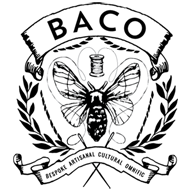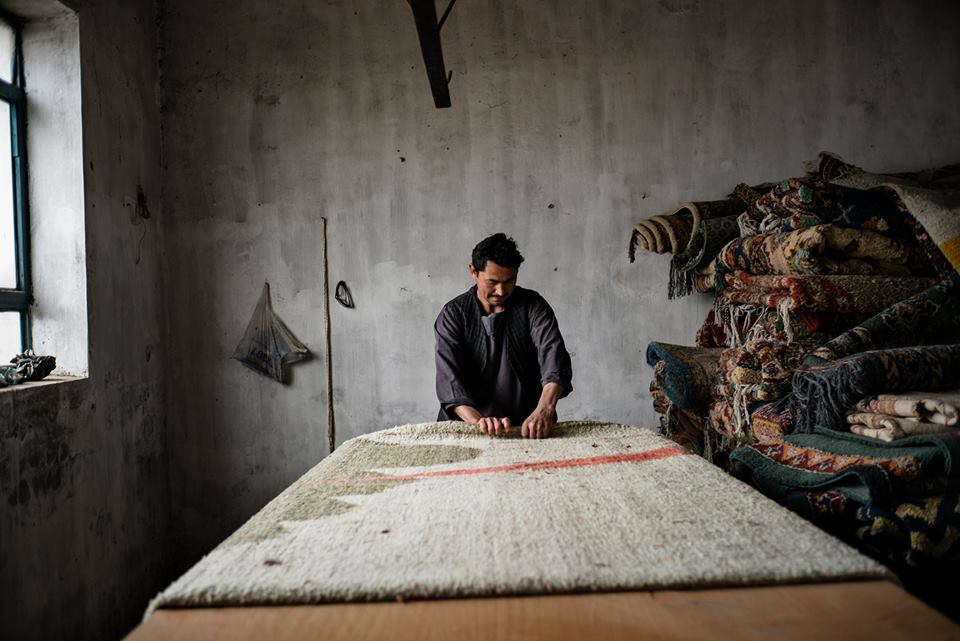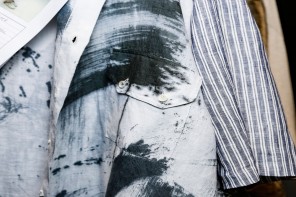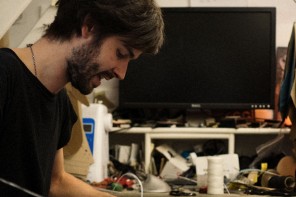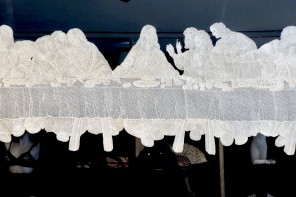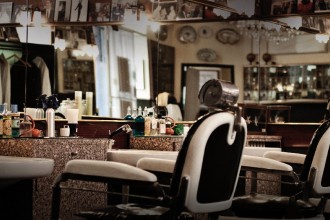Once a stop on the historic Silk Road, Afghanistan’s rich artisan culture has been disrupted by decades of war and political unrest. And while bombs continue to disrupt daily life in Afghanistan, it hasn’t stopped the culture and the nation’s artisans from enduring.
Last month their fashionable goods were thrusted into the virtual global market through Ishkar, an e-commerce website started by two young, passionate London-based entrepreneurs, Edmund Le Brun and Flore de Taisne, 26 and 27-years old respectively.
The duo, who both worked in Afghanistan, started selling cufflinks to fund their travels. It was such a success they decided to embark on something bigger and so they launched a crowd funding campaign, and are now selling artisan craft from this reason, to fortify local economies, provide fair wages to victims of war and help these people grow their businesses amid economic collapse.
Ishkar hopes to put the modern, globalised world in touch with artisans in not only Afghanistan, but also Yemen, Mali and Syria, where craftspeople are specialised in everything from jewelry making to glass blowing and even carpet weaving.
BACO’s editor-in-chief chats with Ishkar co-founder Edmund Le Brun.
What is Ishkar’s mission?
The people we represent have been isolated from international markets by war and insecurity. We hope to change this and help them build a new life. One of our main goals is to purchase through local NGO’s like Turquoise Mountain and Arzu and ensure that a proportion of the money we invest is recycled backinto development projects ranging from providing these people with education opportunities and healthcare clinics. We also want to spread their stories because during war times, it is even more important to share stories and products with the power to inform, surprise and inspire.
It must be hard to ship from Afghanistan. How does shipping work?
We ship in a number of different ways – one is DHL. It’s still enormously expensive and that is one of the biggest challenges we face and it adds a lot of costs to the products.
How many artisans do you work with?
We work with a lot of different individuals and a lot of products: we have one glass blower, about 20 different jewelers, one particular ceramicist and numerous carpet weavers as well, which together employ about 20 and 30 people in the production of their carpets.
What is Afghanistan famous for in terms of craft?
Their real strength is carpets. It’s one of the last centres for carpets. Nobody really wants to make carpets in Turkey anymore and the labour prices there are really high.
Unethical treatment of children in the carpet making industry is a real issue. How can we ensure we are not buying unethical products?
Carpets made by children is a big problem and the only thing one can do is just choose supplies carefully. We are partnering with an organisation that does ethical verification on carpet supplies.
I saw that you partnered with the NGO Arzu to sell carpets designed by Frank Gehry and Zaha Hadid and part of your jewelry range was designed by British jewelry designer Pippa Small. What is the fashion potential in these regions?
Right now we are working with some textile companies and some silk weavers in the city of Harat. We work with an amazing textile company called Zarif Designs in Kabul, and source handwoven silk from northern Afghanistan. We are starting with a collection of ties and some capes incorporating some local wool and silk.
The natural materials there are really special. We just need to find the right designs.
We hear of ISIS suicide bombings and attacks on US bases in Afghanistan. What is it like there in your experience?
General security in Afghanistan is getting worse and security is really localised. Within Kabul, however, it is relatively safe. We don’t feel particularly threatened. We travel around in normal cars and walk around. Others have armed guards, but we never did. We lived there for three years and we know the city very well.
What is your background?
Flore studied at Kings College in London and then at London School of Economics. She later worked as a consultant for the World Bank and for the UN and was advising them on how to improve their development programmes.
But at 18 years old I lived on the Chinese border of Afghanistan and I saw how the Chinese government was destroying the old historic silk road cities. It had an enormous effect on me, and so when I found out about the project in Kabul called Turquoise Mountain that was restoring the old city there – I knew I had to go!
Is there a real thriving artisan culture in Afghanistan, despite the destruction caused by war and civil unrest?
There is a vibrant community of craftsmen but during the civil war and because of the Taliban, many artisans left the country. Things are really fragile in other parts of Afghanistan. The glass blower we work with is one of the last of his kind and with his training. Glass blowers in his region have been making those pieces for 2000 years. All these craftsmen are in precarious situations – if they get ill all that knowledge will evaporate. We hope to invest in him and his business and ensure that that his traditions will stay alive.
Carpets on the other hand, employs over a million weavers. That is a very healthy, thriving industry.
What is daily life like for expats in Afghanistan?
Expats are increasingly isolated from the local community and live in fortified camps or have guest houses with heavy security where they have security restrictions and can’t move around the city.
That wasn’t the case for us when we worked at Turquoise Mountain.
The charity is more low profile and the idea is really just not draw attention to yourself. One doesn’t walk around the streets very often, but we still had the opportunity to travel around the city a fair bit to villages on the outskirts of Kabul.
What are some of the things would you do in your free time?
There were enormous opportunities for adventure. For example, along with a friend of mine we became the first people to raft the Oxus river in Afghanistan. It was a month long trip right through some of Afghanistan’s most pristine and remote scenery.
Lastly, what are Ishkar’s online prices like?
The price range for jewelry ranges between 30 and 300 GBP. Carpets run from about 500 to 1500 GBP, while glass box sets run about 70 GBP.
